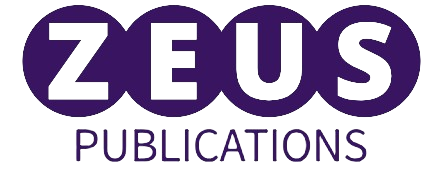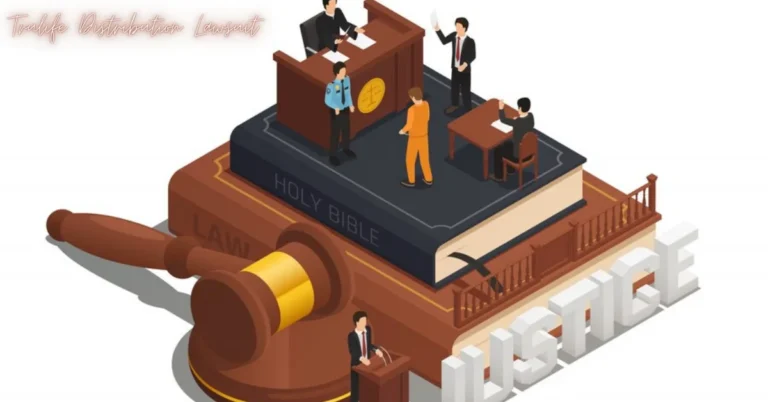Introduction to Trulife Distribution and the Lawsuit
Trulife Distribution has found itself at the center of a legal storm, raising serious questions about ethics in the business world. As allegations surface and details unfold, both consumers and industry stakeholders are left wondering what went wrong. This lawsuit not only affects Trulife but also casts a long shadow over practices within the distribution sector as a whole. What does this mean for those who rely on their products? And how can businesses ensure they maintain integrity amidst challenges? Let’s delve into the intricate web of claims surrounding the Trulife Distribution lawsuit and explore its broader implications.
The Allegations Against Trulife Distribution
The Trulife Distribution lawsuit has unveiled serious allegations that cannot be ignored. Reports suggest the company engaged in deceptive practices, misleading both consumers and partners about product quality.
Additionally, there are claims regarding inadequate safety measures for their products. These issues raise concerns about the potential risks to consumer health and well-being.
Whistleblowers have come forward, detailing a culture of pressure where employees felt compelled to overlook ethical standards. This environment reportedly fostered negligence in compliance with regulations.
Legal documents also hint at financial misconduct, suggesting Trulife may have manipulated figures to inflate profits artificially. Such actions not only breach trust but can severely impact business relationships across the distribution network.
With these allegations surfacing, it’s clear that scrutiny on Trulife Distribution will intensify as more details emerge from ongoing investigations.
The Impact on Consumers and Businesses
The Trulife Distribution lawsuit has sent shockwaves through the marketplace. Consumers now face uncertainty about product quality and reliability. Trust, once established, is fragile and can easily be shattered.
Businesses linked to Trulife may also feel the repercussions. Partnerships could falter as companies reassess their affiliations with a brand under scrutiny. This ripple effect impacts not just sales but overall market confidence.
Many consumers are left questioning their choices. They wonder if they have been misled regarding safety or efficacy of products purchased from Trulife Distribution. The emotional toll can’t be underestimated; loyalty turns into skepticism overnight.
Small businesses that rely on distribution channels could find themselves in precarious positions too. A reduction in customer trust translates to lower revenue and potential layoffs as financial strain takes hold.
Navigating this landscape requires vigilance for both consumers and businesses alike.
Ethics in Business: What Went Wrong?
When examining the Trulife Distribution lawsuit, it’s clear that ethical lapses were critical. Companies thrive on trust, and once that foundation is shaken, everything crumbles.
In this case, miscommunication and lack of transparency played significant roles. Stakeholders felt blindsided by decisions that seemed to prioritize profit over integrity.
Moreover, inadequate training on ethical standards can create a troubling environment. Employees may not always understand how their actions impact the greater good.
The culture within an organization matters immensely. When leadership fails to model ethical behavior, employees might follow suit without realizing the ramifications.
This situation underscores a broader issue in business ethics: accountability must be woven into every level of operation. Without it, companies risk facing severe consequences that extend beyond just financial losses; they can also erode public trust for generations to come.
Lessons Learned and Steps for Improvement
The Trulife Distribution lawsuit serves as a critical wake-up call for businesses. It highlights the necessity of transparency and accountability in operations. Companies must prioritize ethical practices to build trust with consumers.
One vital lesson is the importance of robust compliance programs. Regular audits can help identify potential issues before they escalate. Training employees on ethical standards fosters a culture of integrity.
Communication also plays a key role. Establishing open dialogue with stakeholders can mitigate misunderstandings and foster strong relationships. Listening to feedback is essential for growth.
Additionally, embracing social responsibility should be at the forefront of business strategies. Supporting community initiatives not only enhances brand image but also reinforces commitment to ethical conduct.
By implementing these steps, organizations can better navigate challenges and emerge stronger in their respective industries.
The Importance of Ethical Practices in the Distribution Industry
Ethical practices in the distribution industry serve as a cornerstone for trust. Companies that prioritize integrity foster stronger relationships with their partners and customers. This trust translates into loyalty, which is invaluable in today’s competitive market.
Adhering to ethical standards ensures compliance with regulations. It helps avoid legal pitfalls that can arise from negligent behavior or exploitation of loopholes. In an industry where transparency is crucial, businesses that maintain high ethical standards stand out.
Moreover, ethical practices can significantly impact brand reputation. Consumers are increasingly aware of corporate responsibility and often choose brands aligned with their values. A commitment to ethics not only attracts clientele but also enhances employee morale and retention.
By embracing ethical principles, companies create a culture of accountability. This environment encourages employees to act responsibly and think critically about their decisions—ultimately benefiting everyone involved in the supply chain.
Conclusion: Moving Forward with Accountability and Integrity
As the Trulife Distribution lawsuit unfolds, it serves as a significant reminder of the complexities surrounding ethics in business practices. The gravity of the allegations highlights just how crucial transparency and accountability are within any organization.
Moving forward requires not only addressing past missteps but also embracing a culture that prioritizes ethical decision-making at all levels. Companies must actively engage with stakeholders to rebuild trust and confidence.
The distribution industry, like many others, thrives on relationships built on integrity. Upholding these values ensures better outcomes for customers and businesses alike. As we watch this case develop, it’s clear that taking responsibility is essential for true progress.
Maintaining high ethical standards will pave the way for more sustainable success in an increasingly scrutinized market landscape.
FAQs
Q: What is the Trulife Distribution Lawsuit about?
Ans: The lawsuit alleges misconduct, deceptive practices, and misuse of proprietary information by Trulife Distribution.
Q: Who initiated the Trulife Distribution Lawsuit?
Ans: Nutritional Products International (NPI) filed the lawsuit against Trulife Distribution and its CEO, Brian Gould, in 2022.
Q: What are the key allegations in the lawsuit?
Ans: The case focuses on claims of unethical practices, competition violations, and the alleged misuse of confidential data.
Q: How does the lawsuit impact the health and wellness industry?
Ans: It raises critical questions about fair competition, ethical conduct, and the importance of safeguarding proprietary information.
Q: What is Brian Gould’s role in the lawsuit?
Ans: As CEO of Trulife Distribution, Brian Gould is a central figure accused of orchestrating the alleged misconduct.

